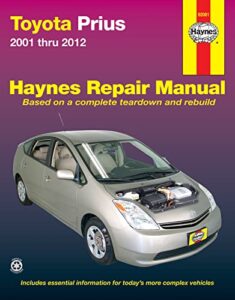As an Amazon Associate, I earn from qualifying purchases
You’re sitting in your Toyota Corolla, turning the key or pressing the start button, but all you hear is the engine cranking without actually starting. It’s frustrating, confusing, and can leave you wondering what’s wrong with your car.
If this sounds familiar, you’re not alone—and more importantly, you don’t have to stay stuck. Understanding why your Corolla cranks but won’t start can save you time, money, and stress. Keep reading, and you’ll discover the most common reasons behind this problem and what you can do to fix it.
Common Causes
When a Toyota Corolla cranks but does not start, the cause often lies in a few common areas. These areas affect the engine’s ability to ignite and run properly. Understanding these causes helps in diagnosing the problem quickly.
Each cause has its own signs and fixes. Knowing them can save time and money on repairs.
Battery Issues
The battery may have enough power to crank the engine but not enough to start it. A weak or old battery often causes this. Corroded battery terminals can block power flow. Loose connections also stop the battery from working well. Testing the battery voltage helps find this problem.
Fuel System Problems
The engine needs fuel to start. If the fuel pump fails, fuel cannot reach the engine. A clogged fuel filter stops fuel flow too. Dirty or bad fuel affects combustion. Check fuel level and smell to spot fuel issues early.
Ignition System Faults
The ignition system creates the spark to light the fuel. Faulty spark plugs or ignition coils stop the spark. Bad wiring or a broken ignition switch can also cause no spark. This prevents the engine from firing up.
Engine Timing Concerns
The engine’s timing controls when valves open and close. A slipped or broken timing belt causes wrong timing. This stops the engine from starting. Timing issues need quick attention to avoid serious engine damage.

Credit: www.captoyota.com
Battery Troubleshooting
Battery issues are a common cause of a Toyota Corolla cranking but not starting. The battery provides the power needed to start the engine. If the battery is weak or dead, the engine may turn but fail to start. Checking the battery can save time and help you avoid costly repairs.
Checking Battery Health
Start by inspecting the battery terminals. Look for corrosion or loose connections. Clean any dirt or build-up with a wire brush. Use a multimeter to check the battery voltage. A healthy battery should read around 12.6 volts when the car is off. Below 12 volts means the battery is weak and may need charging or replacement.
Jump-starting Tips
Jump-starting can help if the battery is too low to start the engine. Use jumper cables and connect to another car’s battery. Attach the positive cable to the positive terminals first. Then connect the negative cable to the good battery’s negative terminal and the other end to a metal part of your car’s engine. Start the working car and wait a few minutes. Try starting your Corolla after that. Remove cables in reverse order once started.
Alternator Inspection
The alternator charges the battery while the engine runs. A faulty alternator can cause the battery to drain. Check if the battery voltage increases to 13.5-14.5 volts when the engine is on. If the voltage stays low, the alternator may not be working properly. Visit a mechanic to test and replace the alternator if needed.
Fuel System Checks
The fuel system plays a key role in starting your Toyota Corolla. It delivers fuel to the engine for combustion. Problems here can cause the engine to crank but not start. Checking the fuel system helps find the issue fast. It saves time and money on repairs.
Fuel Pump Functionality
The fuel pump sends gasoline from the tank to the engine. If the pump fails, fuel won’t reach the engine. This stops the car from starting. Listen for a humming sound near the fuel tank when you turn the key. No sound could mean a bad pump. Testing fuel pressure with a gauge shows if the pump works well.
Clogged Fuel Filter
The fuel filter cleans dirt from the gasoline. A clogged filter blocks fuel flow. This can cause the engine to crank without starting. Replacing the filter is cheap and quick. Check the filter if the car runs rough or has low power before it won’t start.
Fuel Injector Problems
Fuel injectors spray fuel into the engine cylinders. Dirty or faulty injectors reduce fuel spray. This leads to poor combustion and hard starting. Cleaning injectors can fix the problem. If damaged, they need replacement. Watch for rough idling or misfires as signs of injector issues.
Ignition Components
The ignition system is key to starting your Toyota Corolla. It creates the spark needed to ignite the fuel inside the engine. Problems with ignition parts often cause the engine to crank but not start. Checking these parts can help find the issue fast.
Spark Plug Condition
Spark plugs send the spark to ignite the fuel-air mix. Worn or dirty plugs fail to create a strong spark. Look for black soot or cracks on the plugs. Replace old or damaged spark plugs for better ignition.
Ignition Coil Testing
The ignition coil boosts battery voltage to the spark plugs. A bad coil means weak or no spark at all. Test the coil with a multimeter to check for proper resistance. Replace faulty coils to restore spark power.
Distributor Cap And Rotor
The distributor cap and rotor send the spark to each cylinder. Cracks, corrosion, or wear can block the spark flow. Remove and inspect these parts for damage. Clean or replace them to ensure smooth spark delivery.
Engine Timing Issues
Engine timing issues can stop your Toyota Corolla from starting even if it cranks. The engine needs perfect timing to run. This means the parts inside must move in sync. If timing is off, the engine will not fire up. Understanding common timing problems helps you find the cause fast.
Timing Belt Status
The timing belt controls the engine’s timing by linking the crankshaft and camshaft. A worn or broken belt can cause the engine to crank but not start. Check the belt for cracks, wear, or slack. If the belt slips or breaks, the engine valves and pistons lose sync. This can lead to serious engine damage.
Camshaft And Crankshaft Alignment
The camshaft and crankshaft must be aligned perfectly for the engine to work. If they are out of position, the engine will crank without starting. Misalignment can happen if the timing belt slips or is installed wrong. A mechanic can check the alignment using special tools to ensure proper timing.

Credit: www.samarins.com
Quick Fixes
When your Toyota Corolla cranks but does not start, quick fixes can help. These simple steps often solve common issues without needing a mechanic. Try these easy methods first to get your car running again.
Resetting The Ecu
The Engine Control Unit (ECU) manages your car’s engine. Sometimes, it needs a reset to fix minor errors. Disconnect the car battery for 15 minutes. Reconnect it and try starting the car. This can clear faults and reset the system.
Cleaning Fuel Injectors
Fuel injectors deliver fuel to the engine. Dirt or clogs stop fuel flow and cause starting problems. Use a fuel injector cleaner additive in your gas tank. It cleans the injectors while you drive. Regular cleaning keeps your engine healthy.
Replacing Spark Plugs
Spark plugs create sparks to ignite the fuel. Old or worn plugs fail to start the engine. Remove the plugs and check for damage. Replace them with new ones to improve engine performance and starting.
Securing Loose Connections
Loose wires or battery terminals can stop your car from starting. Check all connections under the hood. Tighten any loose cables, especially on the battery. Secure connections ensure proper electrical flow for starting.
When To Seek Professional Help
Knowing when to seek professional help is key if your Toyota Corolla cranks but won’t start. Some problems need expert tools and skills. Trying to fix serious issues alone can cause more damage or cost more money later.
Pay attention to how your car behaves. Early action can save time and avoid frustration. Professionals can find hidden problems fast. They also offer safe, correct repairs for your vehicle.
Diagnostic Tools Use
Professional mechanics use special diagnostic tools. These devices connect to your car’s computer system. They quickly find error codes and pinpoint problems. Tools check fuel delivery, ignition, and sensors. This helps identify why the engine won’t start. You cannot access these tools at home. Experts interpret the results correctly. This saves guesswork and unnecessary repairs.
Signs Of Major Mechanical Failure
Look for signs of serious mechanical failure. Loud noises during cranking may mean engine damage. Smoke or burning smells indicate critical issues. Oil leaks or fluid loss can cause engine problems. If the engine turns over very slowly, the battery or starter may be bad. Frequent stalling or no response at all needs professional attention. These signs show the need for expert diagnosis and repair.

Credit: www.youtube.com
Frequently Asked Questions
Why Does My Toyota Corolla Crank But Not Start?
The engine turns but won’t start due to fuel, spark, or air supply issues.
Can A Bad Battery Cause Cranking Without Starting?
Yes, a weak battery may crank but not provide enough power to start.
Could A Faulty Ignition Switch Cause This Problem?
A bad ignition switch can stop the engine from getting the start signal.
Is The Fuel Pump Responsible For No Start After Cranking?
A broken fuel pump won’t deliver fuel, causing the engine to crank but not run.
How Does A Clogged Fuel Filter Affect Starting?
A blocked fuel filter stops fuel flow, making the car crank but fail to start.
Can A Problem With Spark Plugs Cause Cranking Without Starting?
Worn or damaged spark plugs fail to ignite fuel, leading to cranking with no start.
Conclusion
A Toyota Corolla cranking but not starting can have simple causes. Common issues include battery, fuel, or spark problems. Checking these parts helps find the problem fast. Fixing the issue saves time and money. Always ensure your car gets regular care.
Knowing basic troubleshooting steps helps you stay prepared. Don’t ignore warning signs or unusual sounds. Getting help from a trusted mechanic is wise if problems continue. Keeping your Corolla in good shape means fewer surprises on the road. Stay calm and tackle the issue step by step.
As an Amazon Associate, I earn from qualifying purchases


